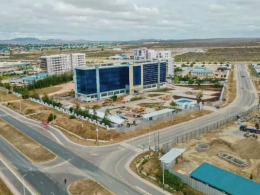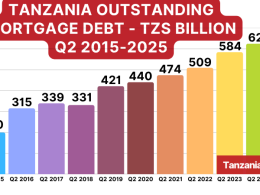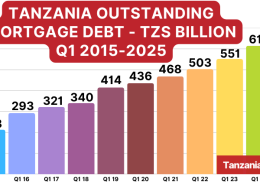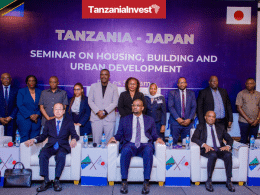On 29 May 2025, the Parliament of Tanzania approved a budget of TZS 164.1 billion for the Ministry of Lands, Housing and Human Settlements Development for the 2025/2026 financial year, with a key focus on the Ministry’s plan to establish a national Land Commission.
The approved funds will be used to continue identifying, planning, surveying, and titling land for various uses across the country.
Presenting the budget in Dodoma, Minister of Lands, Housing and Human Settlements Development Deogratius Ndejembi said the Ministry will establish a Land Commission to create a unified system for managing and implementing land sector activities at all levels.
According to Ndejembi, the Commission will improve efficiency and accountability across all authorities involved in land governance, including the Ministry itself, the National Land Use Planning Commission, and Local Government Authorities.
He stated that Tanzania has delayed too long in creating such a body and in ensuring that all land in the country is properly planned and surveyed.
Ndejembi also announced that the Ministry is proposing a new property law to establish a Real Estate Regulatory Authority (RERA), which would regulate the real estate sector.
The Authority would be responsible for developing a structured regulatory framework, maintaining stakeholder and market data, overseeing the performance of sector professionals, and addressing illegal activities such as money laundering.
He urged all stakeholders in the real estate sector to register with and be officially recognised by the government to support sustainable development and enhance sector collaboration.
Land Governance and Real Estate Sector Reform in Tanzania
Tanzania’s land sector is overseen by the Ministry of Lands, Housing and Human Settlements Development, which is responsible for land use planning, surveying, titling, and property registration across the country.
Institutional overlap, lack of coordination between the central government and local authorities, and limited financial and human resources have historically constrained land administration.
Currently, land use planning is managed by the National Land Use Planning Commission, while land allocation and management functions are also conducted by local government authorities.










